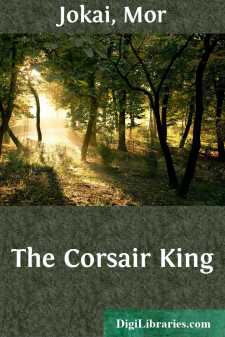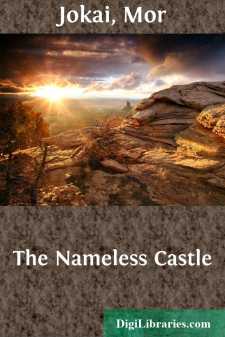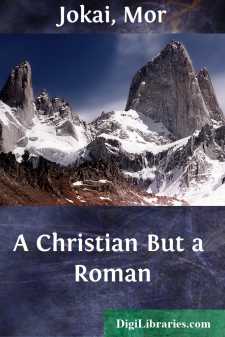Categories
- Antiques & Collectibles 13
- Architecture 36
- Art 48
- Bibles 22
- Biography & Autobiography 813
- Body, Mind & Spirit 142
- Business & Economics 28
- Children's Books 16
- Children's Fiction 13
- Computers 4
- Cooking 94
- Crafts & Hobbies 4
- Drama 346
- Education 46
- Family & Relationships 57
- Fiction 11829
- Games 19
- Gardening 17
- Health & Fitness 34
- History 1377
- House & Home 1
- Humor 147
- Juvenile Fiction 1873
- Juvenile Nonfiction 202
- Language Arts & Disciplines 88
- Law 16
- Literary Collections 686
- Literary Criticism 179
- Mathematics 13
- Medical 41
- Music 40
- Nature 179
- Non-Classifiable 1768
- Performing Arts 7
- Periodicals 1453
- Philosophy 64
- Photography 2
- Poetry 896
- Political Science 203
- Psychology 42
- Reference 154
- Religion 513
- Science 126
- Self-Help 84
- Social Science 81
- Sports & Recreation 34
- Study Aids 3
- Technology & Engineering 59
- Transportation 23
- Travel 463
- True Crime 29
The Golden Age in Transylvania
by: Mor Jokai
Description:
Excerpt
CHAPTER I
A HUNTING PARTY IN THE YEAR 1666
Before we cross the Kiralyhago, let us cast a parting glance at Hungary. I will unroll before your eyes a scene, partly the result of an adverse fate, partly of a dark mystery, representing joy and also deep sorrow. An incident of a moment becomes the turning-point of a whole century.
My soul is saddened by the images thus conjured up; the figures out of the past blind my sight. Would that my hand were mighty enough to write down what my soul sees in that magic mirror. May your impressions, your recollections, complete the scene wherever the writer fails through weariness.
We find ourselves in the valley of the Drave, in one of those boundless tracts where even the wild beasts lose themselves. Here are primeval forests, the roots of which rest in the water of a great swamp encircled not by water lilies and reed-grass, but by giant trees whose branches, dropping below the surface, form new roots in the quickening water. Here the swan builds its nest; this is the haunt of the heron and all those wild creatures one of which only now and then marches out into more frequented regions. On the higher ground, where in late summer the waters ebb, spring such flowers as might have been seen just after the deluge, so luxuriant and so strange is their mighty growth out of the slimy mud. The branches of ivy, stout as grape vines, reach from tree to tree winding about the trunks and decking the dark maples as if some wood-nymph had garlanded her own consecrated grove.
When the sun has set, life grows active in this watery kingdom; swarms of water-birds rise, and with their monotonous, gruesome cries sound the note of the bittern, the whistle of the turtle, and the four notes of the swan, now heard only in the land of fable, for there alone mankind is not; that kingdom still belongs to God.
Occasionally bold hunters venture to penetrate this pathless maze, making their way among the trees in small boats, often overturned by the long roots under the water many fathoms deep, although the dark grass, the yellow marsh flowers and the small dark-red lizard seem to be within reach of one's hand. Sometimes a thicket bars the way of the boat, trees never touched by human hand are rotting here heaped mountain-high thousands of years before. Those trunks that have fallen into the water have been petrified, and the grasses and vines have grown over them in such a tangle that they form a strong crust which sways and bends but does not break beneath the tread. This crust appears to stretch far and wide, but in reality one step too far brings death, so that this strange and remote region is but rarely visited.
On the south flows the Drave, whose rapid current frequently sweeps away the tallest trees, to the peril of the boatmen. To the north the forest stretches as far as Csakathurm, and where the swamp ends, oaks and beeches tower higher and mightier than any in all Hungary. Throughout this wilderness are wild beasts of every kind; especially the wild boar that wallows in the swampy ground; and here too the stag grows to his greatest strength and beauty. In the days that we write of, the buffaloes roamed through this wilderness, making nightly raids on the neighboring millet fields, but at the first attempt to catch them they plunged into the heart of the swamp and were safe from pursuit.
On the edge of the forest in those days stood a castle of so many styles of architecture that one must conclude it had been the favorite hunting-resort of some Hungarian or Croatian noble. The greater part of the building seemed to be a century older than the rest, in fact the oldest part was merely a hut of oak logs rudely put together, its roof overgrown with moss and its walls with ivy and periwinkle; over the door were the antlers of a patriarchal stag; the later lords must have entertained a pious regard for its builder or they would have torn down this hut....












